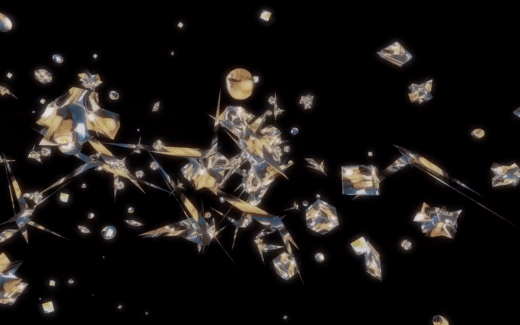This is an article about ADR. It will not be removed by content filters.
Filter Failure is a no-holds-barred information overload of vulnerability, peeking into the computer code of human nature, while troubleshooting the glitches as they evolve.
NOAH BULLWINKLE
Aaron David Ross is lounging in a sunbathed yard in Los Angeles. At the beginning of our Zoom interview, Ross – a.k.a. ADR – tells me that he has flown to LA from his home in New York to celebrate the release of his newest album Filter Failure with family and friends. A trash compactor groans lightly in the background – or so Ross apologetically says. As he settles into his seat, I am too fixated on his outfit to notice the noise.
To put it simply, ADR is dressed to kill. Most immediately salient of Ross’ fit is undoubtedly the black cowboy hat that sits evenly on his head; its large encompassing brim occupies a considerably selfish portion of the confines of his personal Zoom tile. Hiding most of the chain hanging around his neck is a solid-black-sleeved t-shirt, while thin rose gold edges circle the mauve-purple lenses of his sunglasses. While the boundaries of Zoom limit what the rest of his outfit is to my imagination, I imagine that his prospective belt is at least as large and swaggering as the hat. Ross later informs me that he is a maximalist at heart.
If his outfit somehow didn’t prove that from the outset, the music on Filter Failure definitely did.
“With Filter Failure, I didn’t want to try out an outfit. I wanted to figure out what the naked body was.”
A sonic and cinematic odyssey spanning a multiplicity of genres, sounds, and multimedia – Ross created accompanying music videos for each of the project’s 10 tracks – Filter Failure is the fantastically colorful, electrifyingly eccentric culmination of two-and-a-half years of Ross’ obsessive work. Even though Ross burns the midnight oil in both his own personal musical work as ADR and in his collaborative outfit Gatekeeper, he also currently fields multiple noteworthy collaborative stints and a dayjob at Yamaha in Midtown Manhattan. At Yamaha, ADR works with pianos and sets up sound technology for Yamaha artists during in-house studio sessions. Over the past four years, he has produced music for and assisted with the sound design of promotional campaigns for the haute fashion brands Fendi, Prada, and Telfar, along with being a contributor to the score of Uncut Gems.
The first inkling of what would become 2021’s Filter Failure can be traced to a show Ross performed at in 2016. Deciding on a whim to set up a Vocoder, a special type of synthesizer which uses the human voice as its sonic origin, ADR performed on stage with his own vocals for the first time in his career. When he noticed that the audience reacted differently to the vocally-inclusive performance than they did in previous non-vocal-inclusive shows, Ross became intrigued with the idea of the emotionally-effective potential of the human voice.
“It made me excited to try to create songs that use my voice as the connective tissue,” he says. “I feel like when you’re singing, it’s a pure expression of your musical identity, so you get to the more intimate core of who you are as an artist. It’s easier to hide from that when you’re not using your voice.”
But beyond his outward appearance – which could be jokingly (and seriously) described as a Brooklyn cowboy core – and his capricious, idiosyncratic music, who is Aaron David Ross? As a musician living through the music industry’s conspicuous shift to Internet reliance in conjunction with social media’s unsettling tendency to cause identity crises, the question is one he’s still trying to answer. Filter Failure is visibly and intentionally a creation of the Internet era, outlandishly inventive audio-visually and bearing the vulnerable gospel usually brandished exclusively behind computer screens.
“A lot of my projects have been one liners or an idea that is just like a rabbit hole that I can go down and create something based off of,” ADR says. “With [Filter Failure], I didn’t want to try out an outfit. I wanted to figure out what the naked body was.”
“That compulsion to encapsulate your identity in that way, I feel like the whole filter failure canon [is represented by] reveling in that danger. It feels personified, specifically by the infinite scroll.”
For an artist just beginning to use his voice to communicate emotion, ADR puts forth an impressive display of honesty on Filter Failure. Despite his lyrics reading more like literature than your average song (when is the last time you heard someone sing about anything like “abstractions of ephemera” and “expanding endocrines”?), Ross divulges his feelings of isolation, stagnation, and ultimately tranquility with a clarity unencumbered by his lyrics’ everpresent poetic imagery. With regards to lyrical candor, Filter Failure’s songs unfold as ADR’s no-holds-barred dissection of our current reality, doubling as an organic reckoning with where exactly that dissection fits into the crevices of humanity writ large.
The album begins with ‘Posture Ritual’, a track chock-full of dancing synths and hard-hitting bass. ‘Posture Ritual’ is indulgent musically and an apt introduction to Filter Failure’s titular concept of an unstoppable flow of information (or, in this case, sound). ADR is self-aware and lucid on the track, singing about his “sloppy” interactions with the world and the surface-level sweetness of the Internet which turns sour once processed in its entirety. An exultant jazz trumpet solo in the middle of the track, performed by the French composer Dan Tepfar, is a beautifully built-up addition which induces a sense of uncertain duality to ADR’s musings about the online suspension of intimacy.
Following Posture Ritual is ‘OPACITY’. OPACITY’s title is a felicitous choice; its lyrics and opera-singer intro paint a chilling picture of one painstakingly-yet-unsuccessfully searching for honesty and connection in the 2-D realm of social media. ADR cathartically sings to this end in the song’s chorus: “Opacity I can see through the surface only a trace / Opacity fading layers of lives into our peaceful insignificance.” The song’s music video is also reminiscent of its name; while toying around with his software’s settings in the making of OPACITY’s video, he turned every texture to glass.
This revision would seem radical to any experienced animator. As it turns out, before Filter Failure, ADR had never animated anything, ever, therefore creating each video blissfully unaware of any traditionally followed doctrine. Resultative of his novice status is the phenomenon of the beginner’s mind; ideas which would seem far-fetched for a seasoned animator are instead excitedly embraced. One day, by accident, he stumbled upon a piece of animation software, got into a groove while exploring the program’s capabilities, and quickly ended up constructing entire digital worlds on one project (which, according to Ross is absolutely not how 3-D animation is traditionally approached), each of which corresponded with their accompanying song’s thematic content.
In the music video for Filter Failure’s seventh track PRUNE, perhaps one of the most conceptually striking on the project, the protagonist (ADR), who embarks on various journeys throughout the course of the album, has been incarcerated in what looks like a soundproofed room. His eyes and mouth, respectively, are covered by a screen which magnifies the body parts. From my own viewing experience, which, at the time, came without knowledge of the song’s lyrical content, I surmise mid-interview that the plot was attempting to communicate some sense of technological or iPhone-based sensory deprivation. Although Ross enjoys my take on the video, he asserts that its symbolic origins came from a separate negative effect of technology: “The video brings [the screens covering the character’s eyes and mouth] into this place of [that] the isolation is caused by your crippling social media addiction, which is represented by the screen on the hand and the emotion of the face being exaggerated.”
Indeed, over the course of the pandemic, many have found a peculiar-yet-ambiguous comfort in their consumption of technology and media. On one hand, online communities were practically all those confined in their homes had to fulfill their essential human need of communication. Contrastingly, the air within those same communities and online spaces was inextricably polluted with the toxic stench of what sometimes felt like unending suffering at the hands of pandemic-borne uncertainty and racial inequality. This dubious Internet abyss is where Filter Failure’s titular notion takes shape.
“That compulsion to encapsulate your identity in that way, I feel like the whole filter failure canon [is represented by] reveling in that danger,” ADR says. “It feels personified, specifically by the infinite scroll.”
ADR notes here a curious contradiction regarding the obsessive use of social media. As one becomes more adept at traversing the endless paths of the Internet, they learn how to present different parts of themselves in an online-friendly way. But, instead of social media sharpening the outline of how accurate the ego is at perceiving the self, it does the exact opposite in real life, inflicting upon its users a pernicious feeling of isolation and dissociation. Breaks from reality become indulgences, and indulgences become self-flagellating vices.

“The lyrics in [PRUNE] are about isolation and drifting away from people you love, which was very appropriate for pandemic times,” ADR explains. “But then the video kind of brings that into this place of ‘the isolation is caused by your crippling social media addiction’.”
The song sees Ross delve headfirst into this duality, alluding to a disconnect with reality buoyed by what appears to be a distant catalyst: “I-so-la-tion / clear surfaces, rippling / when everything around you fades away/ in exponential decay / you find a way to create salvation in the distance / our existence in the sea of least resistance.”
What this catalyst is is unclear. Especially in an era where exposure often pays musicians’ bills, it is impossible to completely separate oneself from the vehicles of such exposure without somewhat compromising a level of tangible success. For ADR, platforms like Instagram are an inescapable evil of the job, which is why he recently founded his own music label, Legendarium. Along with creating an independent way to distribute and own his own music – which is an essential-yet-sparse asset in today’s industry – the label’s method of outreach with fans, which ADR says will be on Discord, also directly combats the “brain rot” he feels is created by publicly accessible platforms like Instagram.
“I feel like music, for me, is meditation.”
For all the peace the label’s soon-coming benefits may provide in terms of mental health, ADR knows that our brains are unrelenting in their natural tendency to overthink – a tendency that never stops working against the lifelong quest for solace. When all is said and done, however, ADR notes that music’s beauty exists within its meditative capacity. While its effects are imperfect – just as everything is – it can aid us in reaching the elusive pot of gold on the other side of the rainbow where peace is made with life’s turbulent ebbs and flows.
“I feel like music, for me, is meditation,” he says as birds perched on the foliage behind him warble peacefully. “Meditation is that process of not [entirely] removing thoughts from your brain, but just remembering that when you have a thought, [you can] remove it from your brain. You’re never gonna get to that point of pure concentration or pure tranquil experience. You’re going to constantly be distracted by your thoughts, or whatever else is going on around you. It’s bringing your attention back.”
